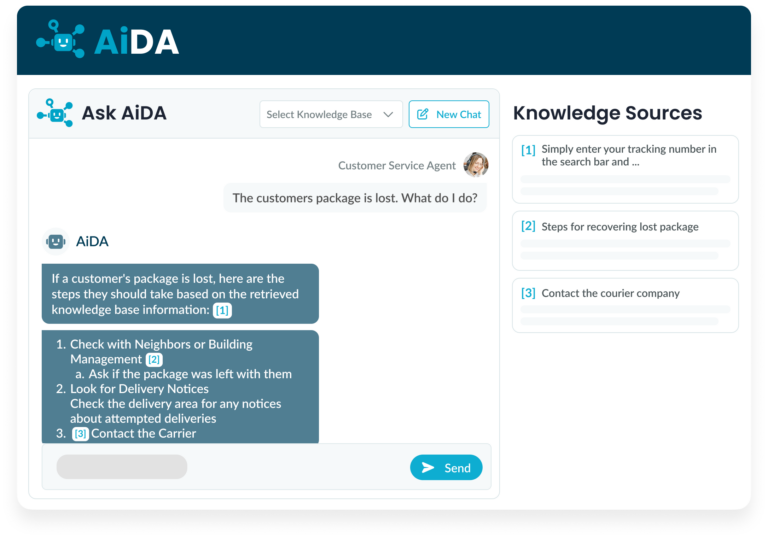As part of a recent QuandaGo webinar, we discussed Home Agent Engagement during the Coronavirus crisis with Angela Muradin, Head of Customer Care at RTL Group, a leader across broadcast, content and digital media with interests in 60 television channels, eight video-on-demand platforms and 30 radio stations. Angela shared her experiences and successes with home-based agents at RTL, and in particular how they managed the surge in demand for video streaming provider Videoland as the pandemic took hold.
Below is a recap of our conversation with Angela sharing first-hand the steps RTL took to transition its contact center to a home-based operation, key lessons learned, and how some of the changes may become permanent in the future!
QuandaGo: What are the first steps that you took with your employees, including your contact center agents, to help adapt to the Coronavirus crisis?
Angela: We started to prepare in the beginning of March already, taking an inventory of what we had in terms of systems and solutions to enable our agents to work from home. At the office we have flexible working spaces, but with desktop computers and hard phones. So, we focused on ensuring that we had the right hardware for our agents at home, as well as moving to softphones. When we had that in place, we started to have agents work from home in shifts to test all the systems, how to contact each other, and how the overall system operated.
Thankfully, everything worked perfectly, so the biggest priority was taken care of immediately. However, from an operational perspective it took a day or two of working from home to get the simple things right, such as how to connect with each other, access the same dashboards we display at the office, see who is working and who is having a break, or what new skills are needed.
Fortunately, using QuandaGo we were able to give our agents easy access to the same dashboards from home, and it really helped the agents and the supervisors effectively manage their work, teams and queues. They could see everything in one place, just like at the physical contact center.
QuandaGo: How did technology play a role in shifting your business and your contact center operations to a remote model?
Angela: All the systems we use are behind an Okta portal, so we had single sign on with two factor authentication, and it was very easy to use. The only thing that had to be quickly organized was installing softphones and ordering cables to use the headsets on the laptops. Quandago helped us within a day to install the softphones, providing training and making sure everything was ready to use. With the QuandaGo contact center manager application, it was also very easy to manage or change the IVRs and skill sets, for example, and have simple access to the queues to make any changes.
We also agreed to use two systems for daily chats, meetings and presentations, Slack and Microsoft Teams. This way, we could keep collaboration and questions organized. Of course, Slack is also very good for individual chit chat with colleagues to help them stay connected.
QuandaGo: How has the crisis changed the way you engage with customers, and what were some of the unexpected issues that occurred as the crisis evolved?
Angela: Since Videoland is an online platform, most of our customer contact is over digital channels, including Messenger and live chat. This requires that we deliver a very fast response time. When the Coronavirus lockdown was first announced, we saw a surge in volume of new customer contacts, and the Videoland platform was growing bigger every day. In fact, the amount of traffic was so big, in a normal situation we probably would have hired extra agents. But since we did not have time for that, we were able to change some things to meet the new demands with the same number of people.
This included keeping the opening hours for customer service the same, but instead of offering all channels within these hours, we reduced some options. Since Messenger is our biggest channel, and we promise a faster handling time here, we kept that the same. However, we shortened the opening hours for the telephone channel, but during that time we made sure we had the maximum agent capacity to handle questions. We then offered live chat before and after our customer service opening hours for phone-based service. This helped decrease repeat traffic, increase customer satisfaction and resolution, and gave our agents the breaks they needed to handle these high volumes.
QuandaGo: What are some of the ways you that your ensured home agent engagement to help employees stay connected and keep morale up?
Angela: We immediately started with a daily video call where everyone puts down all their work for 30 minutes and takes part in the meeting. We wanted people to keep feeling connected to the operation, with us, and with their colleagues from the very beginning. Also, before it was always easy to connect with each other at the office. To overcome this, we now had to schedule more 1-on-1 calls with agents, and our two supervisors in particular performed a lot of work because they coordinated the questions and comments from all team members to make sure everyone was engaged. We found this to be very important, so our management team is now much more involved in the day-to-day business, and we help agents and teams on all channels and ensure that processes that do not go smoothly are addressed.
One disadvantage of working from home is that you typically work much longer days, and if you do not watch out, you can be busy seven days per week. In the beginning, it was also difficult to disconnect because of the growth in interaction traffic. You get excited and want things to go well. To help, we have established contact points and created a standby schedule for agents.
Finally, we organize online pop quizzes, training and online parties to help keep the team feeling strong and connected. We also send postcards and flowers for birthdays, and make spontaneous calls to check in on people. This is very important to keep spirits high.
QuandaGo: Has this crisis brought about any “permanent” changes to the way you’ll carry out customer service and drive home agent engagement moving forward?
Angela: We are thinking that this type of remote operation is something we will carry on because it also helps us better control the costs of running a physical contact center. We also believe working from home is a good option for agents, and also something we can deploy on weekends for instances. A very positive outcome that we learned from this crisis is that the agent productivity in fact increased with a home-based contact center operation.
QuandaGo: What’s next for your company—and your contact center team—as you look ahead to bringing business back to normal?
Angela: The first thing we all want is to get the whole team together for a party, but that’s for later! For now and the near future, we have to think about how to organize working at the office again, while keeping in mind that social distancing will be the normal in the coming months. But since working from home is now very well organized, we are also considering working in shifts that combine both the physical contact center location and home-based operations.
In case you missed the Home Agent Engagement webinar or want to see a replay, you can view it here!





